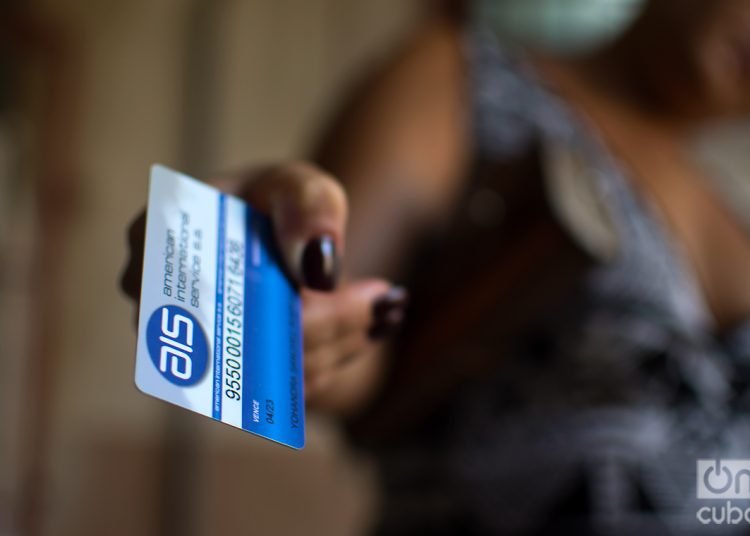The United States Department of State has added the Cuban remittance company American International Service (AIS) to its “black list,” considering that it is an institution controlled by the Cuban Armed Forces and, as such, is at the service of the island’s “repressive apparatus.”
The news was released in a press release issued today, in which Secretary of State Mike Pompeo, ratifies that “The Cuban military also uses AIS, its parent company FINCIMEX, and other entities to charge fees and manipulate the remittance and foreign currency market as part of the regime’s schemes to make money and support its repressive apparatus.”
Today we placed sanctions on AIS, a Cuban military-controlled company that skims money from remittances sent to the Cuban people. AIS revenues fund the regime’s oppression and its interference in Venezuela. This action will reduce the regime's capacity to repress its own people.
— Secretary Pompeo (@SecPompeo) September 28, 2020
“The profits earned from these operations disproportionately benefit the Cuban military, furthering repression of the Cuban people and funding Cuba’s meddling in Venezuela,” the text explains.
Pompeo said on Twitter, from Greece where he is visiting, that AIS steals money from remittances sent to the Cuban people.
The U.S. secretary of state recalled that the President of the United States, Donald Trump, has already made it “clear” that he is on the side of the Cuban people “in their longstanding struggle for freedom and against the communist regime in Havana.”
“The Cuban people deserve to live in freedom and dignity, able to choose their leadership and provide for themselves and their families,” he added, looking forward to the day when the dream of freedom becomes reality.”
Since last July 20, Cuba has 72 new stores in which a group of products can be purchased in freely convertible currency, taking the USD as a reference in their prices.
Payment in these establishments is made through swift cards linked to bank accounts in foreign currencies and accept international VISA and MasterCard cards that are not linked to banks in the United States, national cards of the Metropolitano S.A., Crédito y Comercio (BANDEC) and Popular de Ahorro (BPA) banks linked to accounts in USD and national American International Service (AIS) cards.
The AIS is linked to Financiera Cimex S.A. Fincimex, which is licensed to —among other operations—manage and administer family aid remittances from abroad to Cuba.
Estados Unidos agrega siete entidades cubanas al listado de restricción de empresas
In early June, the Trump administration added seven Cuban entities to the “black list,” including Fincimex, but days later it postponed the sanction on that company until “there is an update of the Federal Register.”
During a speech last week to veterans of the failed Bay of Pigs invasion, Trump announced several restrictions for American tourists visiting the island.
The new measures of the administration of the Republican president to discourage the travel of his compatriots to Cuba included a ban on staying in hotels and importing bottles of rum and boxes of cigars.
U.S. prohibits Americans from using tourist facilities owned by Cuban government
Until now, the only accommodation restrictions covered facilities under military management that came into effect last November with the creation of a “black list.”
In Havana, the reaction to the inclusion of AIS in the black list did not wait. On his Twitter account, Cuban Foreign Minister Bruno Rodríguez criticized the new restrictive measure.
Rechazo declaraciones del Secretario Pompeo.
Nuevas medidas del gobierno de #EEUU contra #Cuba recrudecen el Bloqueo para intentar manipular a los electores de la Florida.
Es maniobra dirigida a dañar al pueblo cubano y los lazos de las familias en ambas naciones.
— Bruno Rodríguez P (@BrunoRguezP) September 28, 2020
“I reject statements by Secretary Pompeo. New measures by the #U.S. government against #Cuba intensify the Blockade to try to manipulate Florida voters. It is a maneuver aimed at damaging the Cuban people and family ties in both nations,” said the minister.
In Washington, the president of the U.S.-Cuba Trade and Economic Council, John Kavulich, told OnCuba that the decision was expected. “This should be seen as a continuation of targeting all activity in Cuba connected with the military. It is a strategy that has no turning back,” he said.
Among other reasons, because “no American or foreign company is going to ask to have relations with the Cuban military, the administration will continue to delve more deeply into the military’s ties and that will create some fear.”
Analysts point out that this new restriction indicates that the administration is not going to stop and President Díaz-Canel should develop a strategy to approach Trump if he is reelected. “If Trump wins re-election, President Díaz-Canel can develop a strategy to protect Cuba in the next four years and hold out until 2025, or he can establish another possibility, which is to approach the administration and negotiate which would mean his withdrawal from Venezuela,” Kavulich stressed.










